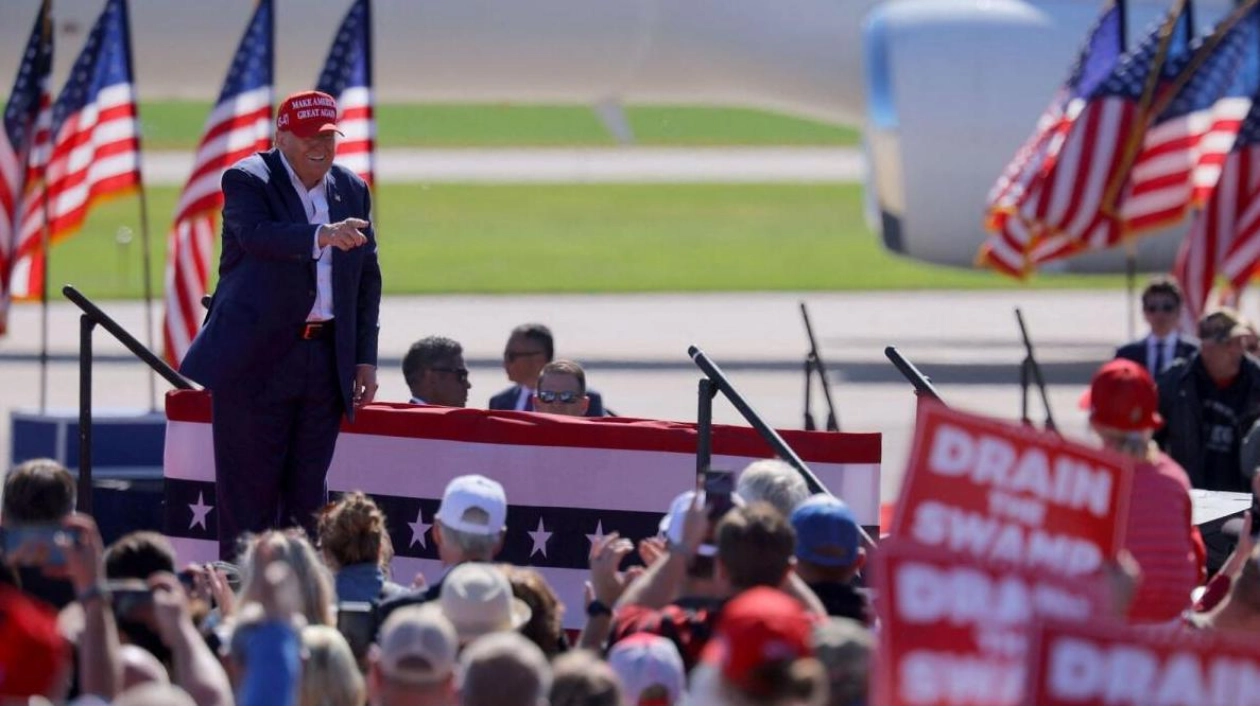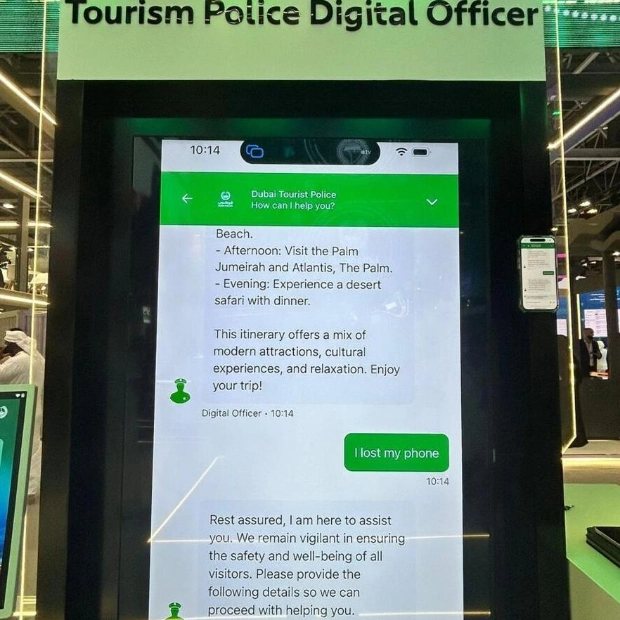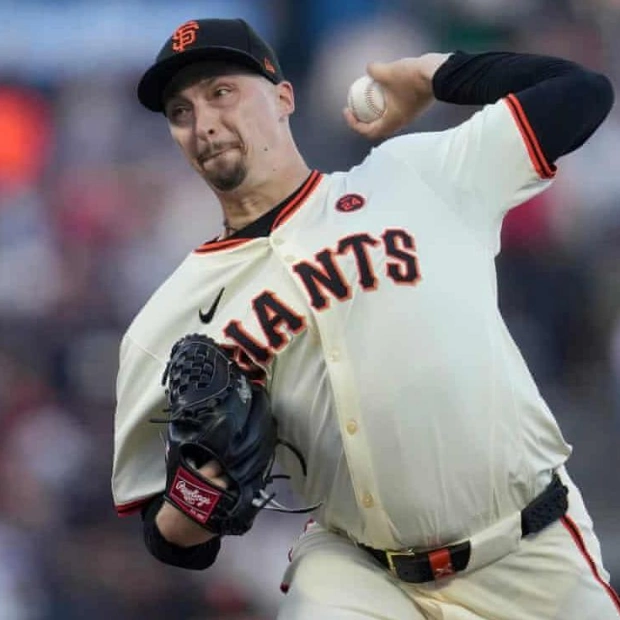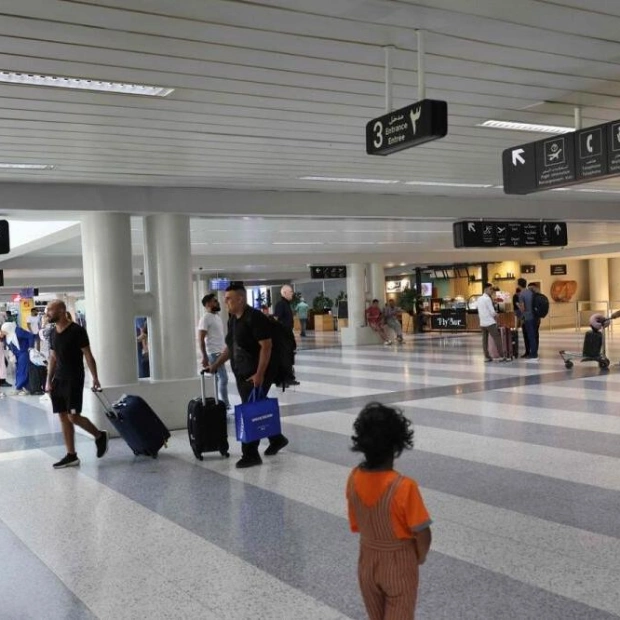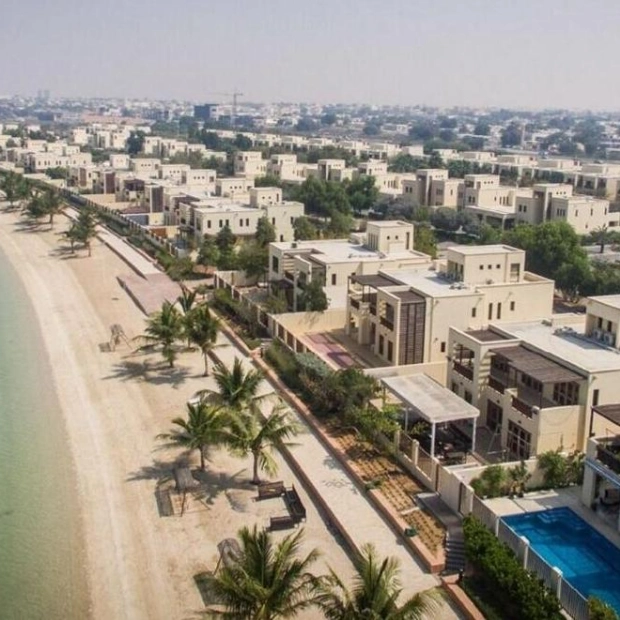Donald Trump vowed in Wisconsin on Saturday to impose unprecedented tariffs and tighten immigration controls, accusing immigrants of stealing jobs and endangering Americans, as he aimed to strengthen support among working-class and rural white voters, a crucial segment of his base.
Addressing a crowd at a regional airport in Mosinee, a town with a population of around 4,500, the Republican presidential candidate cautioned that even allies such as the European Union would face new trade barriers if he secures victory in the November 5 election against Democratic nominee Kamala Harris. He repeatedly depicted migrants as a significant threat to Wisconsin, warning without substantiation that illegal immigrants could force local residents out of their homes.
"Crime is soaring, and you haven't witnessed the migrant crime yet," Trump declared. "It's begun, and it's vicious, but you haven't seen the full extent of it."
Trump also reiterated his previous warnings that the 2024 election could be the nation's last. Support for the former president has waned among most demographic groups since the summer, when his Democratic rival, Vice-President Kamala Harris, replaced President Joe Biden as the Democratic nominee. According to the latest Reuters/Ipsos poll conducted in August, Harris leads Trump among Hispanic voters by 13 percentage points, compared to Biden's five-point lead in May. Among Black Americans, she has outperformed Biden by seven points.
However, these polls indicate that Harris has made little headway among white voters. Whites without a college degree, traditionally a cornerstone of Trump's coalition, still favor him by 25 points, according to the latest Reuters/Ipsos poll. This is a slight decrease from the 29-point margin he held when running against Biden.
Several Trump advisers and supporters have recently told Reuters that maintaining his support and boosting turnout among working-class whites will be vital if he is to defeat Harris. This is particularly true in northern "Rust Belt" states like Wisconsin, which are predominantly white and have significant rural populations. Trump secured the presidency in 2016 partly by winning these areas with promises to revive industrial jobs in the region.
"We won't stand by as our wealth and jobs are stripped away and sent to foreign countries, and Wisconsin will be one of the biggest beneficiaries," Trump said about his proposed trade policies.
Mosinee, where Trump spoke on Saturday, is close to Wausau, a city of about 40,000, but far from the state's major population centers, Milwaukee and Madison. Marathon County, where Mosinee is located, used to be politically competitive, having voted for Democrat Barack Obama in 2008. Since then, the county has shifted right, favoring Trump in 2016 and 2020 by about 18 points each time.
While the Trump campaign has identified Hispanics and Black men as areas for potential growth for the Republican Party, much of Trump's recent campaigning has focused on small Rust Belt cities and towns with few members of these demographics. Trump's running mate, Ohio US Senator JD Vance, is expected to intensify efforts in relatively rural areas of the Rust Belt in the final weeks before the election, according to two Trump advisers.
The Saturday rally marked one of Trump's last public appearances before his debate with Harris in Philadelphia on Tuesday. Many of his allies are urging him to focus his attacks on policy and avoid deeply personal criticisms. Trump did not dwell on Harris' racial identity during his speech, which was filled with grievances. However, a recording played during the rally seemed to mimic Harris' laugh, a sound Trump has often ridiculed.
Trump told the crowd he would cleanse the federal government, including public health and intelligence agencies, of corrupt individuals. He repeatedly criticized Fani Willis, the district attorney in Georgia prosecuting Trump for attempting to overturn his 2020 defeat to Biden. Trump also expressed support for amending the 25th Amendment to the US Constitution, making it an impeachable offense for a vice-president to conceal a president's mental incapacity. Additionally, he criticized the political leadership of Colorado and Maine.
Both states faced challenges to Trump's ballot eligibility in the 2024 election. Colorado's Supreme Court ruled last year that Trump should not be on the ballot due to his alleged role in inciting insurrection by trying to overturn his 2020 defeat, a decision the US Supreme Court later overturned. Trump claimed without evidence that Colorado authorities had ceded control of parts of the state to Venezuelan gangs.
"In Colorado, they're so out of control they're taking over sections of the state," Trump said. "And you know, reclaiming it will be a bloody story."
